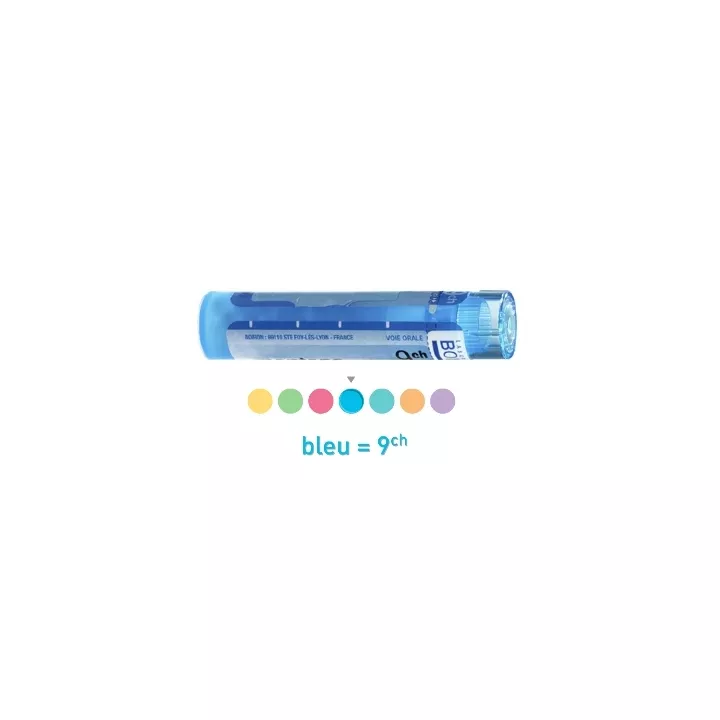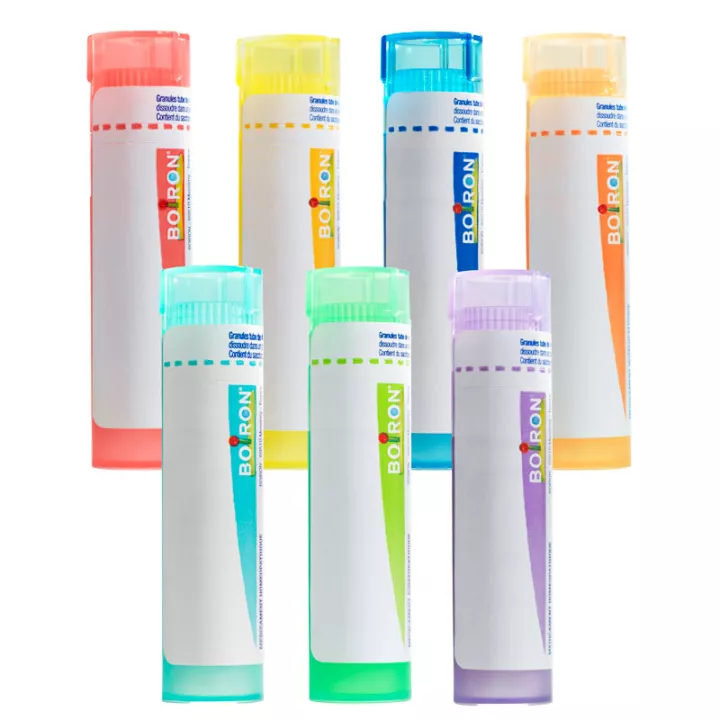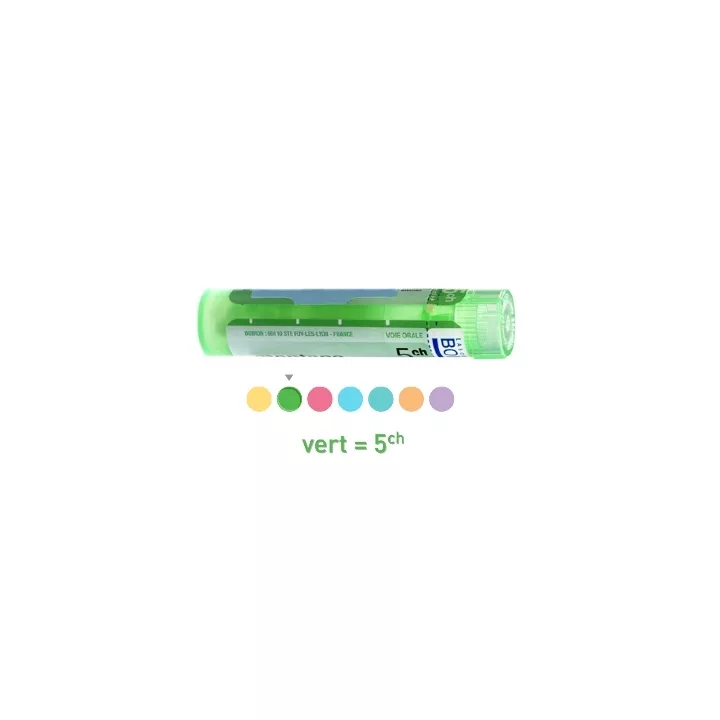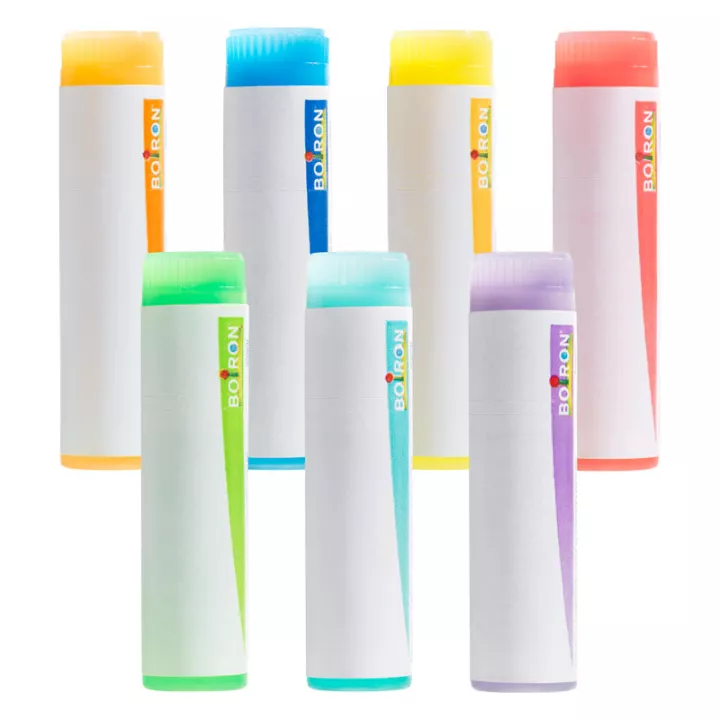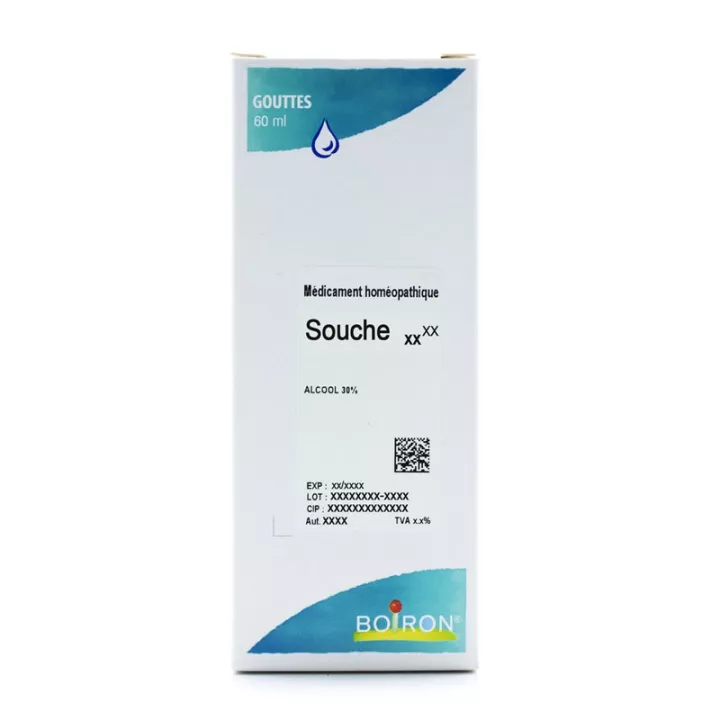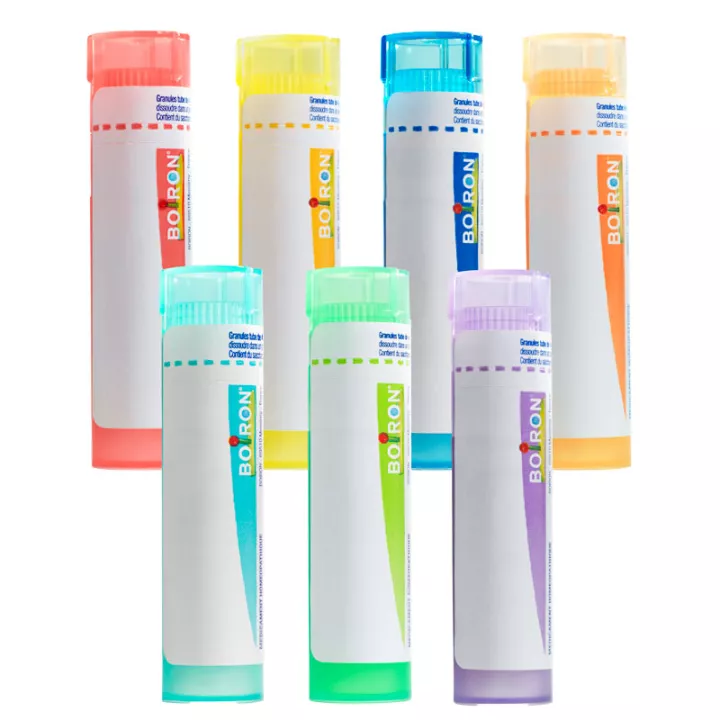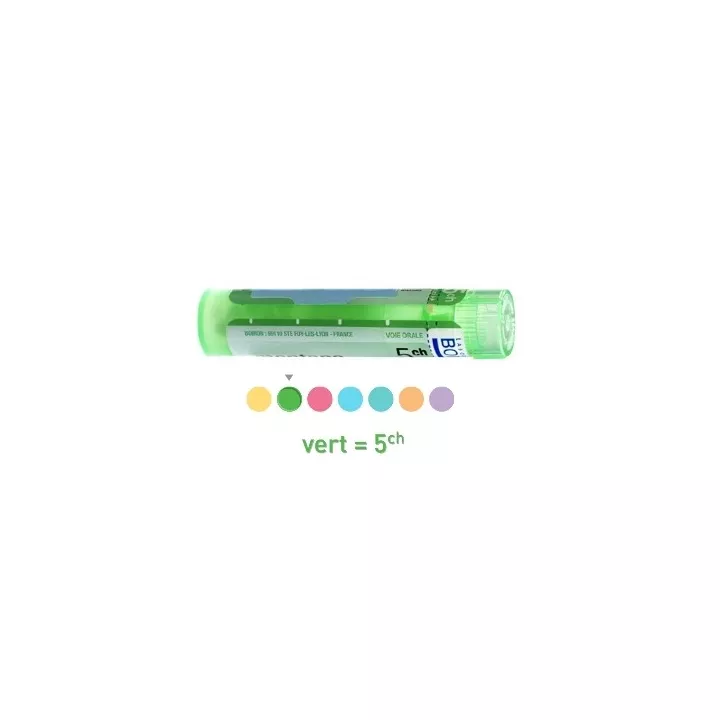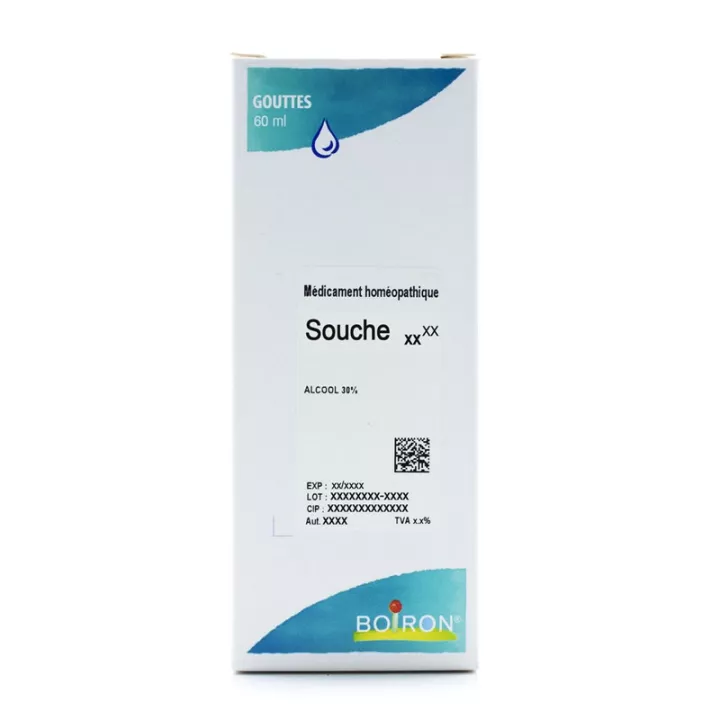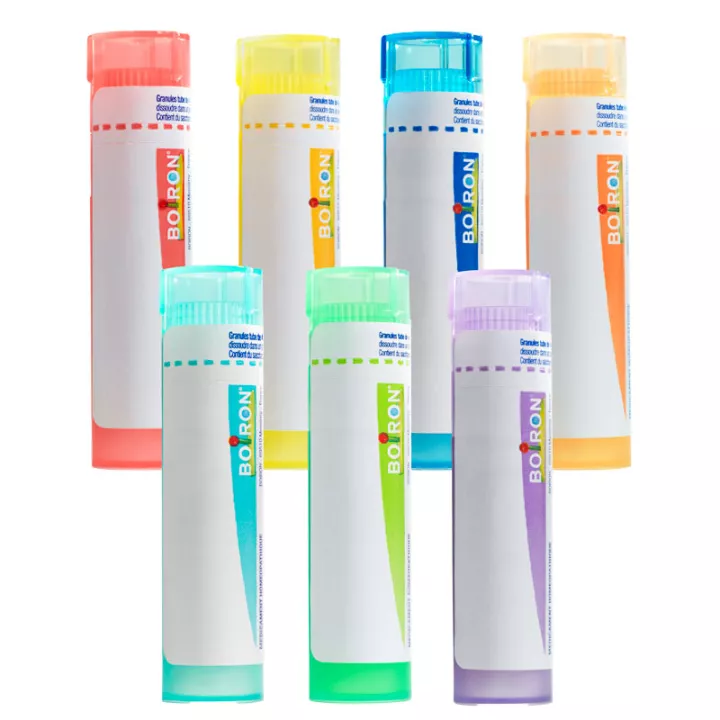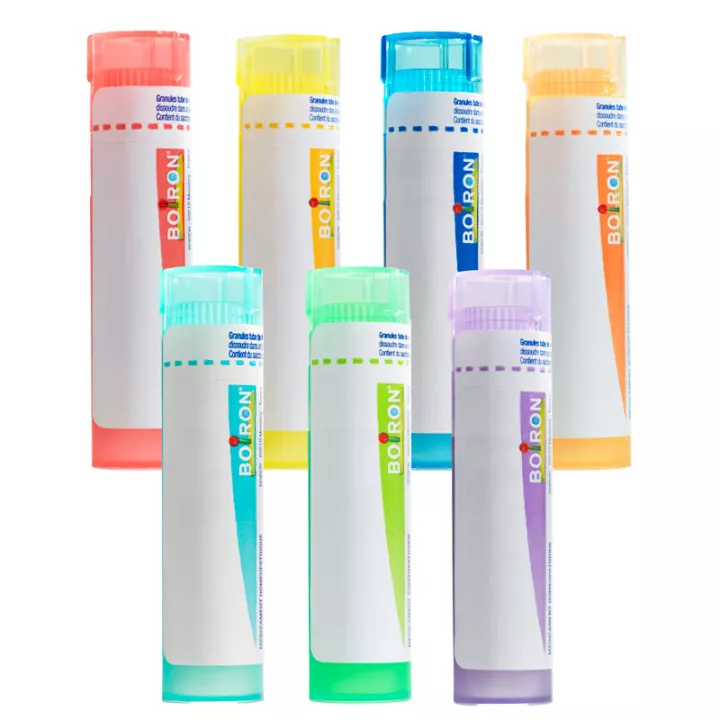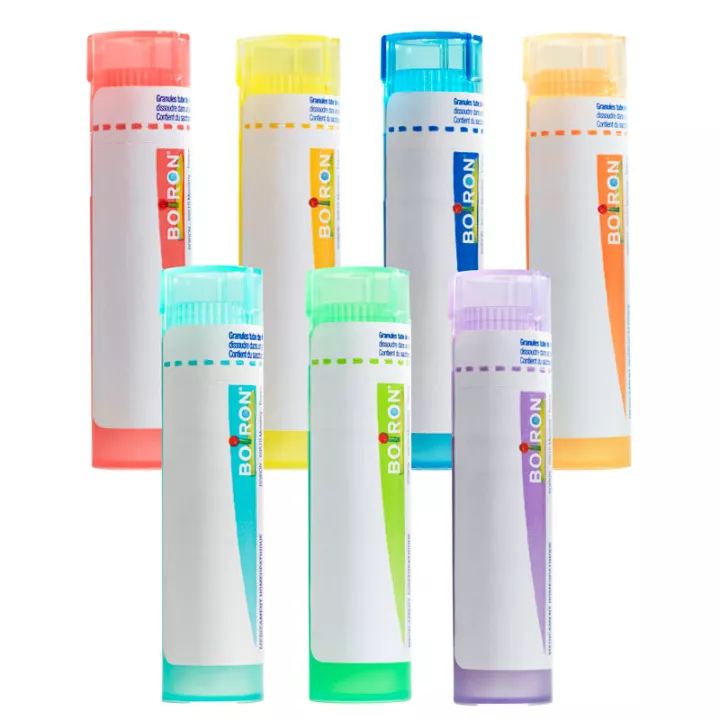Fucus Vesiculosus : A Homeopathic Solution for Metabolism and Weight Loss
FUCUS VESICULOSUS 5CH, 7CH, 9CH Boiron homeopathic granules
Fucus Vesiculosus, also known as vesicular kelp, is a seaweed widely used in homeopathy for its beneficial properties on metabolism and weight management. This herbal medicine is registered under number EH00352 and is recognized by the French and European Pharmacopoeia. It is available in several forms, including doses, alcoholic drops and tubes, as well as magistral preparations, enabling personalized therapeutic application.
Indications and dosage
Fucus Vesiculosus is much more than a simple seaweed. It's a homeopathic medicine with a wide range of applications, from treating obesity and inflammation to soothing insect bites and dry skin. Nor is its role in mental and physical development negligible.
A detailed understanding of its properties and indications enables it to be used optimally in a variety of therapeutic contexts, confirming its status as a valuable and versatile homeopathic remedy.
Homeopathic medicines can be used for a variety of symptoms, so it is not possible to determine the indications and dose of a specific preparation. The homeopathic physician selects the appropriate medicine, dilution and dosage according to the patient's state of health and characteristic symptoms.
Fucus Vesiculosus Boiron: A Homeopathic Remedy for Weight Management and Cellulite
Effective treatment of Obesity and Cellulite
Fucus Vesiculosus by Boiron is a homeopathic medicine primarily used to help manage obesity and cellulite. Thanks to its fat-burning properties, this remedy is a valuable ally in weight-loss programs, helping to reduce cellulite and lower body weight naturally.
Detoxification and improved metabolism
Fucus Vesiculosus is renowned for its ability to eliminate toxins and drain heavy metals and radioactive substances from the body, helping to purify the body and revitalize the metabolism. This detoxifying action is essential for maintaining optimal health and supporting natural weight loss processes.
Appetite-suppressant action and intestinal transit support
As a natural appetite suppressant, Fucus Vesiculosus swells in the stomach, naturally reducing appetite. This property is particularly beneficial for those seeking to control their calorie intake. In addition, it promotes good intestinal transit, improving digestion and avoiding the constipation problems often encountered when dieting.
Main indications and uses of Fucus Vesiculosus in phytotherapy
Appetite suppressant and slimming aid
Thanks to its mucilage-rich structure, Fucus Vesiculosus:
- Provokes a rapid feeling of fullness: It increases in volume when added to water, which helps in slimming diets and detox cures.
- Acts as a mild laxative: Reduces heartburn.
- Eliminates Cellulite: Especially in combination with other plants such as Centella Asiatica or Ivy.
Anti-fatigue and immune stimulant
Enriched with iodine, minerals and vitamins, Fucus Vesiculosus:
- Stimulates the Immune System: Helps prevent common ailments.
- Promotes Rapid Recovery: Acts as an effective anti-fatigue agent.
Anti-inflammatory and treatment of skin disorders
Traditionally used for:
- Treating rheumatism: Thanks to its anti-inflammatory properties on painful joints.
- Treating skin conditions: such as eczema or psoriasis.
Directions for use
Do not touch homeopathic granules with your fingers. Use mint-free toothpaste (such as Homéodent Boiron, which is compatible with homeopathic granules).
Directions for use for maximum effectiveness
For optimal use of Fucus Vesiculosus in the treatment of obesity and cellulite, take 5 granules in the chosen dilution (4CH, 4DH, 5CH, 7CH, 9CH, 12DH, 15CH), three times a day, or as recommended by a health professional. It is best to take this remedy away from meals for optimal absorption.
How long does it take to see results with Fucus Vesiculosus?
Results may vary depending on several factors, including the diet and exercise accompanying treatment. Improvement may be observed after a few weeks of regular use.
Are there any side effects to taking Fucus Vesiculosus?
Fucus Vesiculosus is well tolerated, and side effects are rare in homeopathy. However, in the event of undesirable effects, it is important to consult a health professional.
Can Fucus Vesiculosus be combined with other weight-loss treatments?
Fucus Vesiculosus can generally be used in conjunction with other weight-loss measures. However, to avoid interactions, it is advisable to consult a healthcare professional before combining different treatments.
Is Fucus Vesiculosus suitable for everyone?
Although Fucus Vesiculosus is a natural remedy, it is advisable to consult a healthcare professional before starting treatment, especially for people with specific medical conditions or taking other medications.
Packaging and contents
Origin and properties
Fucus Vesiculosus is extracted from the seaweed of the same name, harvested mainly on cold, rocky coasts. This seaweed is particularly rich in iodine, a crucial element for thyroid function, and in various minerals that support the body's general metabolism.
Available formulas
Doses and tubes: Fucus Vesiculosus is available in doses at the 15 CH dilution and in tubes at several dilutions, including 4 CH, 5 CH, 7 CH, 9 CH, and 12 DH. This variety of dilutions enables treatment to be tailored to the patient's specific condition and sensitivity.
Drops (Alcohol): The remedy is also offered in alcoholic drops for easy administration, available in 4 CH and 4 DH, which can be particularly useful for rapid absorption.
Magistral preparations: For further customization, Fucus Vesiculosus can also be prepared in Hahnemannian dilutions starting at 2 CH. This flexibility enables practitioners to formulate remedies specifically tailored to individual patient needs.
Precautions for use
Warning
Contains sucrose.
Giving homeopathic granules to babies and children
For granules or alcoholic drops, dissolve in 100ml of water. As granules take a long time to dissolve, it is necessary to prepare your mixture in advance.
Homeopathy and pregnancy
Homeopathic medicines have no chemical toxicity, no contraindications, no interaction with other drugs, and no adverse effects linked to the quantity of product ingested. Pregnant women can use homeopathic remedies without any known risk to themselves or their unborn child, but it is advisable to seek advice.
Frequency of homeopathic use
For acute conditions, homeopathic remedies should be taken every hour until symptoms improve. From then on, they should be taken 3 or 4 times a day, spaced out, and then gradually stopped.
For chronic conditions, low-dilution remedies (> 9CH) should be taken 1 or 2 times a day, while basic remedies should be taken once a week, or even once a month. This decision is left to the homeopath.
What to do if there is no improvement within 24 hours
Certain pathologies cannot be treated with homeopathy simply by self-medication. Their seriousness requires medical advice, which can be given by a homeopathic doctor. This doctor will judge whether your condition can be treated with homeopathy alone, or whether your treatment needs to be supplemented with allopathic medicine.

